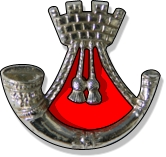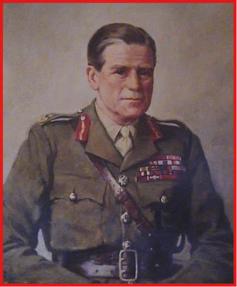
The Somerset & Cornwall Light Infantry
6 October 1959 - 10 July 1968

Osnabruck 1959/61
Plymouth Sept/61

Gibraltar/Tobruk 1961/63

Berlin 1963/65

Gravesend 1965/68









“Harding treated his task as a military emergency. His handling of the situation provokedmany criticisms – the worst tempered of them talked of “shameful excesses” and “murderouscolonialism”, not appreciating the difficulties the Governor faced. On the one hand he had tosuppress what was rebellion and also to keep his own troops in hand.
He never got the credit he deserved for becoming master of a difficult situation, and much ofthe criticism – due to the British Government of the day, if to anyone – fell unjustly upon him.In the desert, contemporary accounts speak of his “unshakeable inspiring influence amidviolent eddies and currents in troublous days. He was as popular a CIGS as ever the army hashad, extremely competent and at the same time kindly and considerate.
If his peerage was the reward (in 1958) of his services in Cyprus it was also a tribute to agreat solider who had fought his way to the top and who from one war to another made noenemies except the enemies of his country”.
THE TIMES 21 JANUARY 1988:
“Field Marshal Lord Harding of Petherton, GCB, CBE, DSO and two Bars, MC who died on January 20 at the age of 92, was the first man in history of the British Army to begin his career as a Territorial and end it as Chief of the Imperial General Staff.
Soldiering, though he came to it by chance, was his life and love. Yet he had to wait until after the war for public recognition. Through the accident of war and wounds he failed to hold one of the wartime supreme commands, though his reputation among his fellow soldiers was assured.
He came to direct the fortunes of the Army at critical periods during the cold war and he held the governorship of Cyprus in troubled times at the end of the 1950s.
Born in February 1896 in Somerset, Allan Francis Harding began his working life as a clerk in the Post Office Savings Bank in London, after leaving Ilminster Grammar School. It was in London that he was introduced to Territorial soldiering, and he joined the Finsbury Rifles, the11th Battalion the County of London Regiment. In May 1914 he was commissioned, and by the following year he was on his way to Gallipoli as a platoon commander. He quickly made his mark as a soldier, and in 1917 he obtained a regular commission.
He was then gazetted to his county regiment, the Somerset Light Infantry. Serving in Palestine he was given command of a machine gun battalion and thus, at 22 became a lieutenant-colonel. After the war, during which he won the MC he reverted to his substantive rank of lieutenant, and it was not until 1938 that he was appointed Brevet Lieutenant-Colonel, thus regaining the rank he had held 20 years earlier. He bore this long wait uncomplainingly.The period between the wars impressed several lessons on Harding. He learned to appreciate the potential of armour. The following year at the Staff College he was fortunate enough to have Bernard Montgomery and Richard O’Connor as instructors. In 1934-35 he gained valuable experience of politico-military problems as Brigade Major in the international force supervising the Saar Plebiscite.
In 1936 at the War Office he was concerned with studying the problem of countering a threat to Egypt from Italian – held Cyrenaica.
But the outbreak of war found him frustratingly far from the scene of action, serving with his regiment on the North West Frontier in India. It was not until October 1940 that he was sent to the Middle East as GSOI 6th Division. Even then divisional HQ played no part in General Wavell’s offensive against the Italians, but Wavell made Harding his personal liaison officer with General O’Connor, commander of the Western Desert Force (later 13 Corps), and Harding stayed with O’Connor throughout the fighting, so impressing him that he secured his services as his Chief of Staff thereafter.
Harding continued to hold this onerous appointment under O’Connor’s successors General Beresford-Pierse and General Godwin-Austen; he was lucky not be among the party when O’Connor and General Sir Philip Neame were captured by the Germans in March 1941. During operation “Crusader” which relieved Tobruck in November 1941, Harding was a tower of strength, with his imperturbability and clarity of mind, in an exhausting and confusing series of battles. At one point Corps HQ was almost surrounded by the enemy, but managed to fight its way through to join the beleaguered Tobruk garrison.
When Godwin-Austen was relieved of his command of 13 Corps after the debacle following Rommel’s riposte from Agheila in 1942, in which Godwin-Austen’s orders for withdrawal were countermanded by General Ritchie at Auchinleck’s instigation, Harding insisted on being relieved too, a move characteristic of his honesty and honour.
After a brief period of frustrating non-combatant activity in training and on the staff, Harding was soon back in action in command of the 7th Armoured Division, the “Desert Rats”, on the eve of Alamein. Though an infantryman Harding had all the temperament of a cavalry officer, and during the battle itself he was an inspiring example.
When his division attempted to force its way through minefields he went forward himself to see whether or not a gap had been cleared. The driver of his jeep was killed at his side, but he pressed on. In the pursuit which followed the battle he was far-seeing in his decisions, always fretting at the delays his anxious superiors imposed on him.
He was, typically, standing on top of his brigade commander’s tank, urging the latter to get his armour forward to assail the enemy when a shell landed nearby, knocking him off the tank and severely wounding him. Any attempt to evacuate him by ambulance over the rugged country was sure to prove fatal, so his men worked all night to construct an emergency landing strip. Next day, while the fighters of the Desert Air Force fought running battles with the Luftwaffe overhead, he was evacuated by air ambulance to Egypt.
His three DSOs gained in 1941, 1942 and 1943 are an eloquent testimony to his fighting record in the desert.
After recovering from his wounds Harding was appointed to command the 8th Armoured Corps, then training for the Normandy landings. But his known skill as a staff officer called him from this congenial task to be Alexander’s Chief of Staff in 15th Army Group, and he spent the rest of the war in the Mediterranean. Immediately after the war he commanded 13th Corps in Trieste in troubled times. During the war he had adopted John as a christian name by deedpoll, having been styled thus from the earliest days by his Army friends.
After a brief “rest” as GOC Southern Command, Harding went to Singapore as commander of Far East Land Forces in 1949. With the Korean war, the French Indo-China war, and the battle against communist insurgents in Malaya, it was a tense time throughout. Harding was always highly aware of the need for some regional organisation which later took shape as Seato. His appointment to the British Army to the Rhine in 1951 was an equally critical one. NATO was in its infancy; the ground force shield in western Europe had to be built up; British formations had to be brought to life again and thoroughly prepared for war. Harding brought a sense of urgency to the situation and his great experience of high command breathed new life into units that had become used to the undemanding life of an army of occupation.
When, in November 1952, Harding was called to take over from Field Marshal Sir William Slim as CIGS he left a BAOR which was tuned for battle.
The boy who started life as a savings bank clerk had now reached the top of a widely different profession. But his time as CIGS was by no means a settling into the comfortable upholstered seat at the top, and marking time for his pension. He was a man with a vision of how the Army should develop in the long term, and a time of international instability which led to continually changing requirements made it difficult to achieve many of his far sighted plans. While therefore relishing his job, Harding was often solely tried.
In 1955 he was about to retire to life in the country when he was summoned by the government to take on one of his toughest assignments. The Conservative administration had got itself into an international impasse over Cyprus where the situation was deteriorating. It was decided to appoint a military governor and commander-in-chief with direct responsibility for everything that went on in the island.
Harding had to address himself to projects of economic and social development, and to broadcasting. On the political front he performed the singular feat of winning the confidence of Archbishop Makarios, the leader of the Enosis movement.
When in 1956 Makarios was deported to the Seychelles after talks with Mr Lennox-Boyd, the Colonial Secretary had failed, Harding was left to battle against the EOKA terrorists. By 1957, judging that EOKA was on its legs, Harding accepted an offer of a ceasefire from EOKA. Its leader, Grivas, was made an offer of free passage to Greece. He did not avail himself of it, but his capacity for mischief was much reduced, and a period of comparative quiet followed. In talks held in London later in 1957 Harding pressed for the release of Makarios under generous terms. This view eventually prevailed, though the emergency regulations in Cyprus were only slightly relaxed.In final retirement, Harding, who was created first Lord Harding of Petherton in 1958, served as chairman of the Horse Race Betting Levy Board and was also chairman of the Plessey Company. Away from these duties he tended his Somerset garden. He was also Colonel of the Somerset Light Infantry (from 1960 The Cornwall and Somerset Light Infantry). His wife, Mary, died in 1983. He leaves a son.